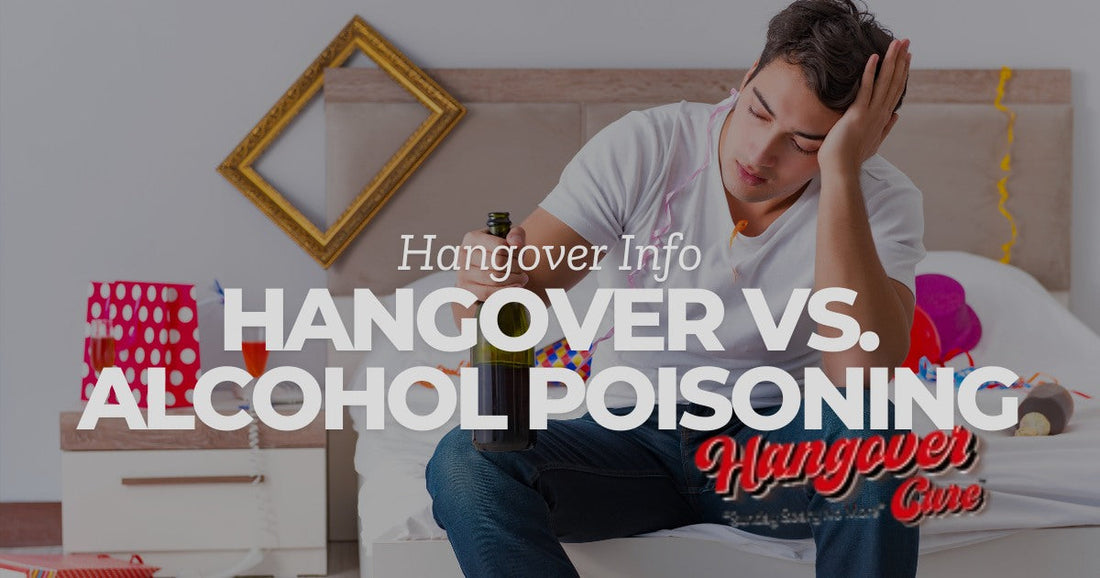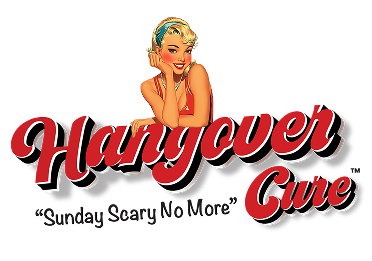
Hangover vs. Alcohol Poisoning: Know the Difference
Share
When it comes to drinking, understanding Hangover vs. Alcohol Poisoning: Know the Difference can literally save lives. Many people brush off the signs of serious alcohol-related issues, thinking it's just a bad hangover. However, knowing when it's more serious could mean the difference between a tough morning and a medical emergency.
Let’s break down everything you need to know to stay safe and make smarter choices.
Introduction: Why Knowing the Difference Matters
Every year, thousands of emergency room visits are caused by alcohol poisoning, and sadly, many could have been prevented. While a hangover usually just needs rest and hydration, alcohol poisoning is a life-threatening condition that demands immediate medical attention. Recognizing the symptoms early can protect not just your health — but your life.

What Is a Hangover?
A hangover is your body’s reaction to drinking more alcohol than it can efficiently process. It's uncomfortable, sure, but it usually isn’t life-threatening.
Learn about our remedies
Common Symptoms of a Hangover
-
Headache
-
Nausea or vomiting
-
Fatigue and weakness
-
Dehydration
-
Dizziness
-
Sensitivity to light and sound
-
Mood disturbances (like irritability)
According to Mayo Clinic, hangovers typically resolve within 24 hours with proper care.
Causes of Hangovers
-
Dehydration
-
Electrolyte imbalance
-
Low blood sugar
-
Stomach irritation
-
Poor sleep quality
What Is Alcohol Poisoning?
Alcohol poisoning happens when there’s so much alcohol in your bloodstream that it starts to shut down critical areas of your brain controlling breathing, heart rate, and body temperature.
Symptoms of Alcohol Poisoning
-
Confusion or stupor
-
Vomiting repeatedly
-
Seizures
-
Slow or irregular breathing
-
Blue-tinged or pale skin
-
Low body temperature
-
Unconsciousness (cannot be awakened)
As per the CDC, alcohol poisoning is a medical emergency that requires immediate intervention.
Causes of Alcohol Poisoning
-
Binge drinking (drinking large amounts quickly)
-
Mixing alcohol with medications
-
Low tolerance levels
-
Consuming contaminated alcohol
Hangover vs. Alcohol Poisoning: Key Differences
Although symptoms can overlap, certain signs point clearly toward a medical emergency.
Symptom Comparison Table
| Symptom | Hangover | Alcohol Poisoning |
|---|---|---|
| Headache | ✅ | ❌ |
| Nausea | ✅ | ✅ (more severe) |
| Confusion | ❌ | ✅ |
| Seizures | ❌ | ✅ |
| Passing Out | ❌ | ✅ (can't wake them) |
| Slow Breathing | ❌ | ✅ |
| Pale/Blue Skin | ❌ | ✅ |
When to Seek Medical Attention
You must call 911 immediately if someone:
-
Can't wake up
-
Shows blue or pale skin
-
Has slow or irregular breathing
-
Experiences seizures
Tip: Never assume someone will "sleep it off" if they're showing these symptoms.
First Aid for Alcohol Poisoning
-
Call emergency services
-
Stay with the person
-
Try to keep them sitting up
-
If they must lie down, turn them on their side
-
Never leave them alone
Why You Should Never Ignore Severe Symptoms
Ignoring alcohol poisoning can lead to:
-
Permanent brain damage
-
Cardiac arrest
-
Death
Prompt action saves lives.
How Alcohol Affects the Body Over Time
Chronic heavy drinking leads to:
-
Liver damage (cirrhosis)
-
Brain shrinkage
-
Increased cancer risk
-
Heart disease
Long-term alcohol misuse severely impacts almost every organ system.
Risk Factors for Severe Alcohol Reactions
-
Low body weight
-
Younger age
-
Chronic illnesses
-
Medication interactions
-
Dehydration
Prevention Tips: Drinking Responsibly
Know Your Limits
Set a drink limit before you start.
Eat Before Drinking
Food slows alcohol absorption.
Hydration is Key
Drink water between alcoholic beverages.
Myths About Hangovers and Alcohol Poisoning
-
Myth: Cold showers sober you up.
Truth: Only time can lower BAC (Blood Alcohol Content). -
Myth: Coffee cures a hangover.
Truth: It may dehydrate you more!
Long-Term Health Risks of Binge Drinking
-
Memory loss
-
Liver and kidney failure
-
Mental health disorders
-
Risk of sudden death
FAQs About Hangovers and Alcohol Poisoning
1. Can you die from a hangover?
No, but alcohol poisoning can be fatal.
2. What’s the safe number of drinks per night?
No more than 1–2 drinks for most adults.
3. Should you let someone “sleep off” alcohol poisoning?
No! Always seek medical help immediately.
4. Can binge drinking cause permanent damage?
Yes, especially to the brain and liver.
5. What’s the fastest way to recover from a hangover?
Hydration, sleep, and healthy food.
6. How can you prevent alcohol poisoning?
Drink slowly, eat before drinking, and know your limits.
Conclusion: Stay Safe and Informed
Understanding Hangover vs. Alcohol Poisoning: Know the Difference empowers you to act quickly, protect yourself, and take care of others. Drink responsibly, know the signs, and never hesitate to seek help when needed. Safety first — always!
Ready to Recover Smarter
Don’t let a hangover or worse slow you down.
Get fast, effective solutions trusted by thousands!
👉 Order Your Hangover Cure Now and feel better, faster.
